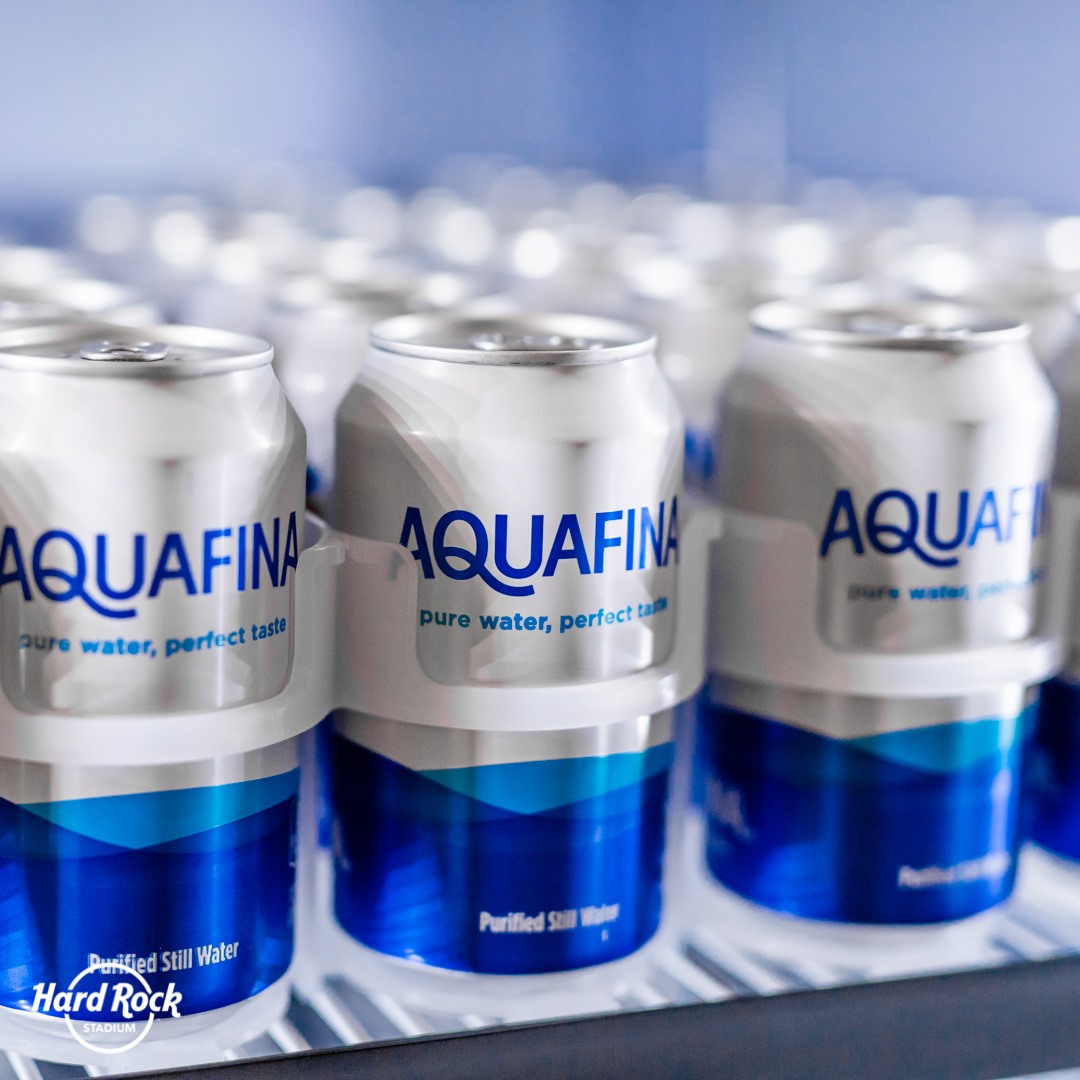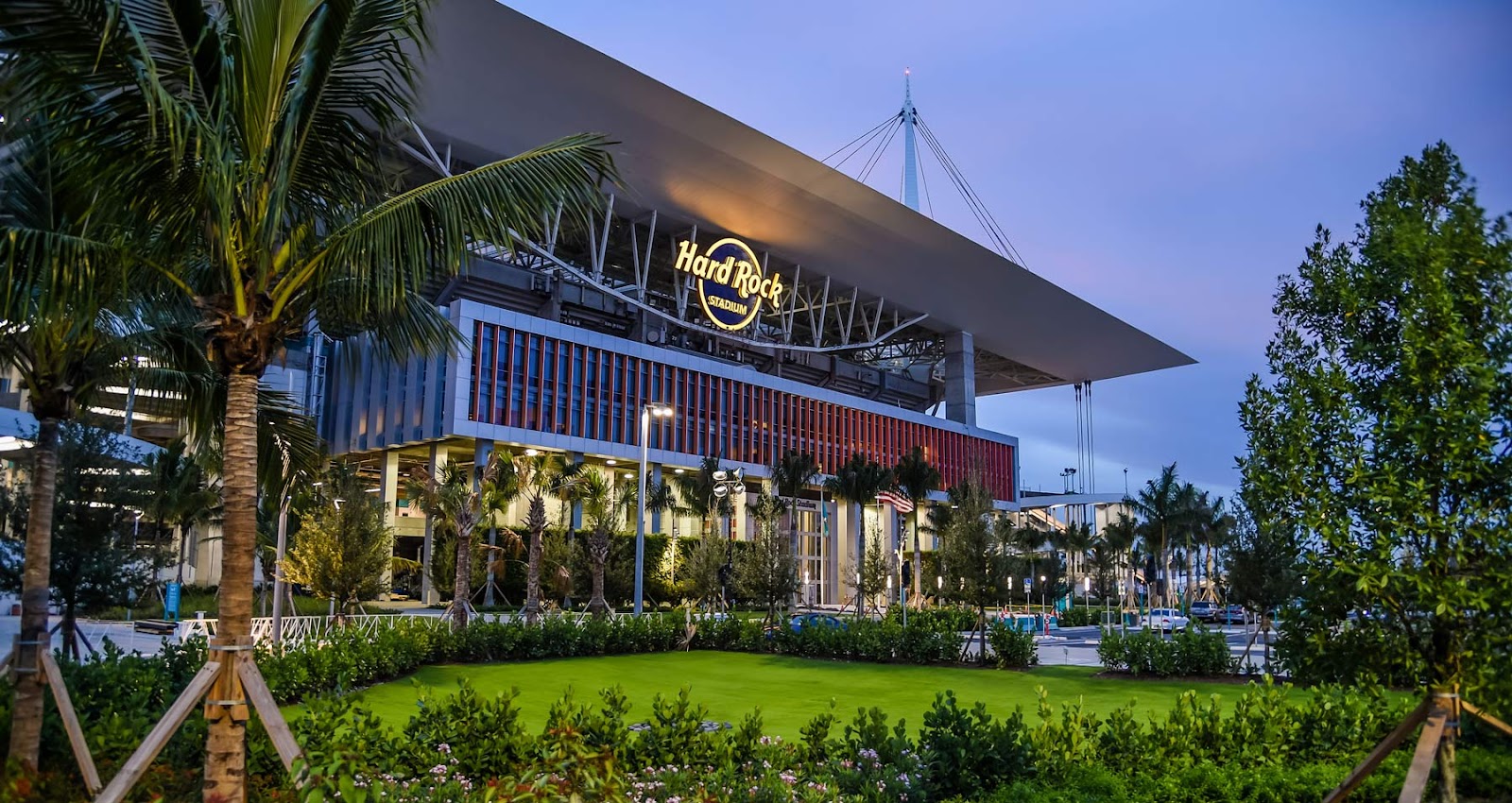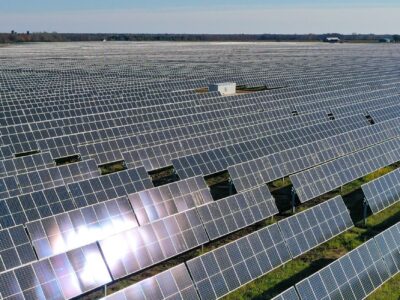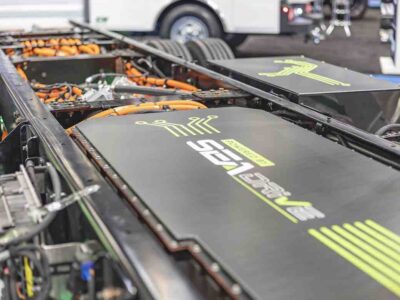Like many large sports venues, Miami’s Hard Rock Stadium hosts various events. Primarily the home of the NFL’s Miami Dolphins, it has been the site for NCAA football games, soccer games, concerts, and even Formula 1 races.
However, perhaps most unexpectedly, the Hard Rock is where the Miami Open tennis tournament has been staged since 2019. It pairs with the BNP Paribas Open at the Indian Wells Tennis Garden to form the “Sunshine Double” tournaments, which annually serve to launch the U.S. tennis season.
The Hard Rock Stadium also shares with the Indian Wells Tennis Garden a commitment to sustainability. Most notably, the Hard Rock, in 2019, became the first American professional sports venue to switch from plastic cups to aluminum ones. The only remaining plastic items available were souvenir soda cups and ice cream in collectible football helmets.
This effort environmentally impactful change eliminated the use of more than 500,000 plastic cups and nearly 700,000 plastic bottles per year. Additionally, aluminum cups provide the eco-advantage of being able to be recycled many times over, unlike their plastic counterparts.

Photo Courtesy Hard Rock Stadium
The aluminum cups were created by the Ball Corporation, who built a facility in nearby Georgia just to manufacture them. These cups, made with 90% recycled materials, led to Ball receiving Fast Company’s World Changing Ideas Award in the consumer products category along with the Edison Award for innovation in sustainable solutions for consumers.
Tom Garfinkel, the vice chairman, president, and CEO of the Hard Rock Stadium, praised Ball and the venue’s other partners — Pepsi, Budweiser, and the NFL — for helping to make the transition to the aluminum cups go so smoothly. Kevin Mitchell, vice president of Centerplate, the stadium’s official caterer, explained to “Forbes” that the changeover “is another example of an innovative and practical enhancement that will help us reduce our carbon footprint.”
The move to aluminum cups was part of the Hard Rock’s larger sustainability campaign to cut more than 99% of its single-use plastics, including cutlery, stirrers, spoons, and plastic packing, as well as instituting a no plastic straw policy.
The plan extended to the stadium employees, who received reusable water bottles.
“If we do something at the stadium and can set an example, what kind of larger impact can that have? …” Garfinkel told “Forbes.” “This isn’t a political thing, and it’s not if you drink out of a plastic bottle, you’re a bad person. The volume we do here creates a lot of plastic, so if we can change that, we’re making a big difference.”
This phase-out program resulted in 60 pallets of single-use plastics being removed from the stadium over 10 days.

Photo Courtesy Hard Rock Stadium
A member of the Green Sports Alliance, the Hard Rock Stadium also boasts an extensive waste reduction program. The venue uses liquid food digesters and biodigesters for composting. Moreover, kitchen oil is repurposed into biofuel, which creates renewable energy, and excess food, instead of being discarded in landfills, is donated to local missions.
Carbon emissions are additionally decreased by Centerplate sourcing many ingredients from local farms. In fact, the stadium has been hailed for having the first fully organic concession stand in sports.
The green initiative extends to other areas of the venue’s operations. Switching to LED lighting has made it more energy efficient. The amount of trash has been reduced using mobile tickets instead of paper ones, while a sorting and recycling system has improved waste management.
Water conservation has improved by installing waterless urinals and touchless sensor faucets. The stadium’s attention to cleanliness and sustainability was rewarded in 2020 when it became the first public facility to earn a GBAC STAR accreditation from the Global Biorisk Advisory Council of the International Sanitation Supply Association (ISSA) in recognition of its cleaning, disinfection, and infection prevention strategies.

Photo Courtesy Hard Rock Stadium
Considering how accomplished the Hard Rock Stadium operations have been, it is not surprising that the facility was the choice for the Miami Open organizers when they needed to find a new place for its 2019 tournament. An innovative design plan placed the center court inside the stadium with a couple of dozen courts created in the venue’s parking lot.
The construction used modular components that saved building time; less time means less pollution generated through the building process. The unique set-up proved popular with fans — the 2019 tourney easily broke attendance records for the 30+ year-old tournament. It also garnered Fast-Dry Courts the 2020 Outdoor Tennis Facility of the Year Award from the American Sports Builders Association for its work at the event.





